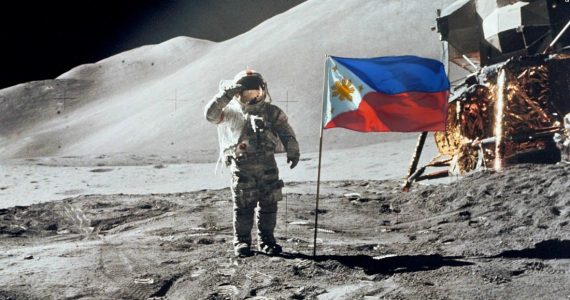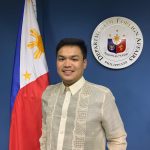
From outside in: Using space technologies for sustainable development
“What do you want to be?” Every kid has been asked that question. I once dreamt of being an astronaut only to be struck by the reality that there is no such job position in the Philippines. Astrology is not even a real science for what it is worth. I moved on with my life to become a nurse before joining the Foreign Service. Strangely enough, the stars would align for me to encounter a space diplomacy module in my training. An inconceivable idea in the past is now a defining moment for the country—the establishment of the Philippine Space Agency (PhilSA).
The Philippines is a newcomer to the space sector, having commenced its space program in August 2019. PhilSA has no launch capability; it only operates satellites like most space agencies do. Only six agencies to date are capable to launch and recover multiple satellites, deploy cryogenic rocket engines, and operate space probes. These are the national space agencies of China, India, Japan, the United States, Russia, and the European Space Agency (a consortium of 22 European countries). In a relatively small program, the Philippines successfully launched three locally engineered microsatellites into space via foreign facilities so far.
PhilSA is predicated on security needs rather than the broader scientific goals of developed countries. The territorial dispute at the West Philippine Sea is the raison d’être for the passage of the law on national space policy. PhilSA shall aid in maritime surveillance of internal waters for prompt military action. Another useful application of space technologies is in disaster management. The Philippines is located in the infamous Ring of Fire, making it prone to natural disasters. The real-time satellite images will help in more accurate weather forecasting and rapid assessment after a disaster. These two reasons may justify the program’s $38 million annual budget in the face of domestic problems in health, agriculture, and water shortage.
The Space4SDGs campaign of the United Nations Office for Outer Space Affairs outlined examples of how space technologies can be utilized in the attainment of the 17 Sustainable Development Goals (SDGs). Take SDG 3 for instance, space technologies can be used in telemedicine to deliver healthcare services in far-flung areas. Remote sensing satellites provide farmers key data about the soil quality, crop development, and rainfall, to mitigate the effects of food and water shortages. In terms of partnerships, space technologies enable international cooperation initiatives and exchange of information.
The benefits of space technologies look promising on paper. It is easy to rave about the convenience brought by new technology. It is withal a mistake to attribute the negative consequences to innovation itself. Social media is a good illustration of how a technological marvel becomes a cause of mayhem and there is no one to blame for this blunder but us humans. The idea that the scientific method is about the objective and rigorous trial-and-error approach to understanding nature has been deeply ingrained in scientists’ minds, without thinking hard about the implications of an ‘error’ to the society. After all, the latter is the province of social science and humanities. The production and application of knowledge have always been two separate fields and this division is partly the culprit for the intractable problems we face such as healthcare access, food security, and water supply.
PhilSA has a de facto monopoly of both the production and application of space technologies in the Philippines. The broad scope of space science makes it possible to narrow the inequality gap if the right policies are in place to facilitate technology transfer in various sectors such as medicine, agriculture, and engineering. Republic Act No. 11363 provides that PhilSA shall be headed by someone with technical expertise in astrophysics or related fields. While the law also creates an inter-agency council to serve as an advisory body, it gives extensive powers to the PhilSA chief to shape the Philippine space policies as he sees fit. Scientific know-how is required to successfully launch a rocket in space and equally important is the skepticism to answers that we might get from space science. Hence, we must be vigilant of our space policies and how it will develop to affect our lives.
The integration of sciences and humanities has become paramount to steer frontier technologies in the right direction towards a sustainable future. It is no longer viable to work in silos if we want to avoid the human race extinction in the next century or even decades. Yet, our current education system is built on a capitalist tradition, which is “designed to teach future factory workers to be punctual, docile, and sober.” We need to change the system if we want to produce the next generation of not just competent but also empathic scientists and engineers. A model for inculcating both sciences and humanities is the Global Schools Program, a campaign of the UN Sustainable Development Solutions Network Youth (SDSN Youth) where schools and teachers are provided the necessary tools and resources to educate their students on the SDGs. The supplemental curriculum equips the young with critical thinking skills to discern, inter alia, the potential and limitation of science before they specialize in a subject in college.
A space agency is a starting point for pushing the boundaries of science. The Philippines has taken the giant leap to participate in the discussion of the future of humanity. It brings us back to the existential question of what we want to be. The space technologies offer cutting-edge solutions to our wicked problems; however, it is not value-free and its impacts largely depend on those who wield it. The responsibilities of science and technology leaders have never been as pivotal in determining the social norms. As science governance continues to evolve into a more anticipatory, reflexive, and inclusive form, the youth must not shy away to speak out and offer meaningful insights to the discourse. My childhood aspiration of exploring space might not materialize as I have imagined. On a positive note, I have learned to embrace uncertainty.
Disclaimer: The views and opinions expressed in this article are those of the author and do not necessarily reflect the opinion of CISS or its members.

Jim Jimeno
Jim Jimeno is a Foreign Service Officer at the Philippine Department of Foreign Affairs. He currently serves as a principal assistant at the Office of the Undersecretary for Migrant Workers’ Affairs. He holds a BS Nursing degree from the University of Santo Tomas and a Master of Health Social Science degree from De La Salle University. He is interested in the nexus of migration, health, and security.
